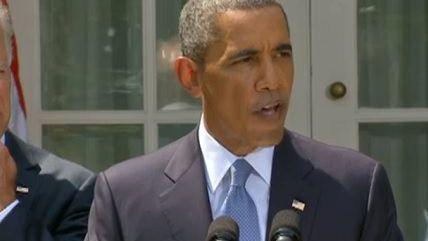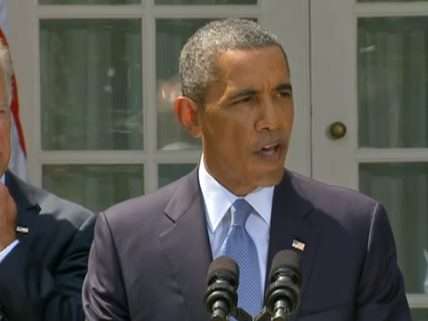Syria is Not Iraq, Congressional Authorization Edition
Few argued George Bush didn't need it to use military force in Iraq


In 2002, President Bush pressed Congress to authorize the use of military force in Iraq, which his administration argued had possession of weapons of mass destruction. The war was a culmination of several decades of US policy toward Saddam Hussein's Iraq, and specifically of US policy from the First Gulf War (which Wesley Clark, incidentally, says the situation with Syria should be compared to) onward. In the 80s, Hussein's Iraq was a useful ally against the then just formed Islamic Republic of Iran, against which Iraq fought a decade-long war. The US even helped Iraq knowing the Hussein regime had used chemical weapons and would do so again.. After the First Gulf War, the US set up a no-fly zone over portions of Iraq (to prevent the use, for example, of chemical weapons against Kurds or Shi'ites) and a sanctions regime against the country. In 1998, President Clinton signed the Iraq Liberation Act, which made regime change in Iraq official US policy. Clinton also ordered periodic bombings of facilities in Iraq related to supposed Iraqi intransigence with UN inspectors, of the kind that led to the escalation preceding the 2003 Iraq War..
Despite a long-standing US policy toward regime change in Iraq, few argued in 2002 that President Bush didn't need authorization for the use of military force in Iraq from the Congress. "Because I believe it is important for America to speak with one voice at this critical moment I will vote to give the president the authority he needs," Senate Majority Leader Tom Daschle said as he helped deliver a 77-23 vote in favor of that authorization from a Democratic-controlled Senate.
Now, President Obama, who unilaterally declared chemical weapons use in Syria would constitute a "red line," is seeking authorization from Congress to take military action in response to a chemical weapons attack the US says the Syrian regime is responsible for. But he says he doesn't need that authorization. Obama's "coalition of the willing" started coming apart when the Parliament of the United Kingdom took a non-binding vote against British intervention in Syria. The French, fresh off a military intervention in Mali to expel Islamist militants partially enabled by the post-intervention chaos in Libya, are still eager to strike against Syria, but they are increasingly alone. The UN chief has warned intervention in Syria could lead to more turmoil.
Even though he says he doesn't need the authorization (following his own precedent in Libya in 2011 and Bill Clinton's in Kosovo in 1999), President Obama is busy personally lobbying members of Congress for support on Syria. He's got Boehner's support, and says he's confident Congress will vote in favor of military action, though some members of Congress on both sides are skeptical.
Syria is not Iraq, supporters of Obama's desire to intervene in Syria like to say—they have better evidence, they don't "intend" to put boots on the ground, and the president is "war weary." And where President Bush knew he needed Congressional authorization to respond militarily to what he eventually argued was an "imminent threat" from Iraq, President Obama doesn't think he needs Congressional authorization to act in response to the crossing of a red line he drew and no other body endorsed. The US war in Iraq was a tragedy, the march toward war in Syria so far is a travesty.


Show Comments (35)